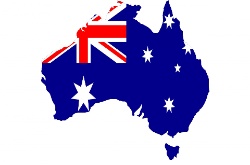Lydia Lewis, RNZ Pacific Presenter/Bulletin Editor

France's top diplomat in the region says talks around the "unfreezing" of New Caledonia's highly controversial electoral roll are back on the table.
The French government intended to make a constitutional amendment that would lift restrictions prescribed under the Nouméa Accord, which disqualified around 20,000 French citizens who had not resided in the territory before 1998 from voting in the provincial elections.
The restrictions were viewed as a step to ensure indigenous Kanaks were not at risk of becoming a minority in their own country.
Read more:
- 'France lost the plot': Journalist David Robie on Kanaky/New Caledonia riots
- Roch Wamytan: 'New Caledonia is not France'
- 'New Caledonia is France': French diplomat says
However, Paris' decision to move ahead with the changes last year triggered five months of civil unrest that has cost the New Caledonian economy over €2 billion.
The constitutional reforms were initially suspended in June, before the former Prime Minister Michel Barnier abandoned it.
However, this week, France's ambassador to the Pacific Véronique Roger-Lacan confirmed that the French Overseas Minister Manuel Valls is set to discuss the issue during next week's high-level visit to Nouméa.
She said a date for the provincial elections, to be held at the end of this year, is also in the works.
"The provincial elections were due in December last year, and because there was discussion on the unfreezing of the electoral lists, the whole process was stopped," Roger-Lacan said at a press briefing in Wellington.
"The discussion on the unfreezing of the electoral list for the provincial elections continues."
She said in a normal democratic system, everyone who pays taxes has the right to vote.
"Because when you pay taxes to a government, you have the choice of the government [to whom] you give your money. [In New Caledonia] there is a discrepancy," she said.
"This was one point of contention that led to the riots."
She said the French constitution states that if any of its overseas territories want self-determination, "they can have it."
Self-determination is defined by the United Nations as either independence, state association (as in the Cook Islands), or integration within an already independent country, which is the case in New Caledonia, she said.
"They can choose peacefully among those three solutions. But no riots, no insurrection."
Roger-Lacan pointed out that there is a "strong split" with the pro-independence groups in New Caledonia.
She said there is a part of the pro-independence FLNKS group who realise that "this discussion on the unfreezing of the electoral list does not make sense".
"They agree that the unfreezing of this electoral list is the way to go. What are the criteria for the deferring of this electoral listing are a case of discussion."
Roger-Lacan added that the provincial elections must take place before Christmas day.
"The question is: with what type of electoral list they will take place."



 Australian Catholic University: Principals Navigate Growing Challenges As Anxiety, Depression Increase And Violence, Workloads Intensify
Australian Catholic University: Principals Navigate Growing Challenges As Anxiety, Depression Increase And Violence, Workloads Intensify SNAP: Survivors Deliver Vos Estis Lux Mundi Complaints Against Six Cardinals To Vatican Secretary Of State Parolin
SNAP: Survivors Deliver Vos Estis Lux Mundi Complaints Against Six Cardinals To Vatican Secretary Of State Parolin UNICEF Aotearoa NZ: Myanmar Earthquake A Further Blow For Millions Of Children
UNICEF Aotearoa NZ: Myanmar Earthquake A Further Blow For Millions Of Children Greenpeace: 'Desperate And Deceitful'- Deep Sea Mining Frontrunner Turns Its Back On Pacific Nations
Greenpeace: 'Desperate And Deceitful'- Deep Sea Mining Frontrunner Turns Its Back On Pacific Nations 350.org: Australia Announces Election Dates, Pacific Islanders Rally To Vote For Climate
350.org: Australia Announces Election Dates, Pacific Islanders Rally To Vote For Climate UNICEF Aotearoa NZ: Global Aid Funding Cuts - 14 Million Children At Increased Risk Of Severe Malnutrition And Death
UNICEF Aotearoa NZ: Global Aid Funding Cuts - 14 Million Children At Increased Risk Of Severe Malnutrition And Death